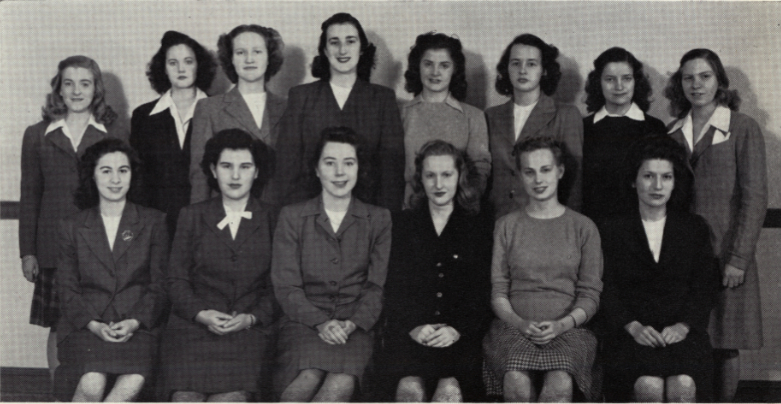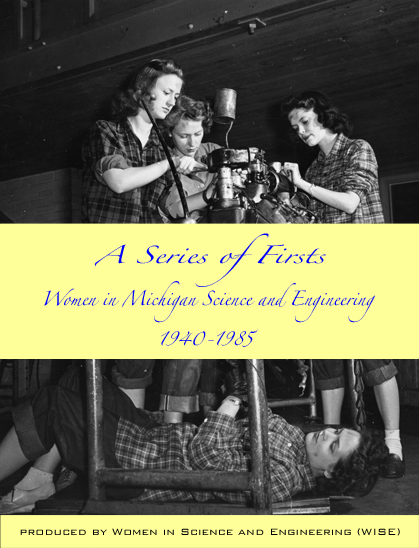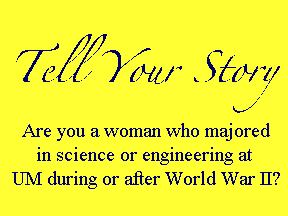About
A Series of Firsts: Women In Michigan Science and Engineering celebrates the 25th Anniversary of the Women In Science and Engineering Program (WISE) at the University of Michigan. The first eleven in-depth alumnae interviews document the experiences of ten women who earned Bachelor of Science degrees and one woman who earned a Master of Science degree at the University of Michigan between 1942-1957. These interviews capture the voices of those who experienced first-hand the academic and social aspects of life at the University at a pivotal moment in American history. By entering fields that were traditionally dominated by men, these women achieved a series of "firsts" in the sciences. While at the University, they excelled academically despite the challenges that they encountered, both in and out of the classroom. Many of the women went on to pursue successful careers in the sciences, working as professors at institutions such as the University of Pennsylvania and the University of Toledo or in the private sector for companies that included Shell Chemical, North American Aviation, and the Ford Company.
The last interview features Barbara Sloat who focuses on the founding and early years of the Women In Science program from 1980-85. Presenting a unique viewpoint of academic life after second wave feminism, she discusses the challenges WISE faced in its early years, not the least of which was annual fundraising. She also highlights some of the most rewarding programs and resources they developed in those first five years including the Warner-Lambert Lecture Series, the Women Faculty in the Sciences Resource Directory, and an annual conference for women in science. In addition, she touches upon the personal choices she made to bring WISE to fruition and to continue pursuing her own dreams.
WISE has chosen to publish these twelve interviews in order to recognize individuals who have traditionally been marginalized by the dominant cultures in science and engineering and to make their stories accessible to the general public. Both the book and the website offer unique primary sources for scholars and inspirational texts for young women who are pursuing careers in engineering and the sciences. They also provide general readers with first-hand accounts of what it was like for women to enter fields that were controlled almost entirely by men. Lastly, these interviews contain rich details about social, academic, and professional life during the 1940s, 1950s, and 1980s, which personalizes the impact of historical events like World War II, the Korean War, and the Cold War.
Perhaps most significantly, A Series of Firsts: Women In Michigan Science and Engineering reminds young women of the extraordinary changes that have occurred in engineering and the sciences that would have been unthinkable sixty years ago. Compared to today, when opportunities for women in the sciences have significantly expanded, these interviews testify to the tenacity and courage of women who were the "firsts" of their generation to enter the sciences at the highest academic and professional levels. They also link these historical accomplishments with present opportunities by providing role models for students who can learn from the ambition, innovation, and perseverance of alumnae. Finally, these publications serve as tools for important programs, such as Women in Science and Engineering, to continue promoting women in the sciences at the University of Michigan.
About WISE
The Women In Science and Engineering (WISE) office sponsors many outreach programs that encourage young girls, undergraduate and graduate students to explore science and engineering. For more information, please visit our website at: www.wise.umich.edu/

Society of Women Engineers, 19461
1. Michiganensian, 1946, p. 205
Women In Science and Engineering
1140 Undergraduate Science Building
Ann Arbor, MI 48109
ph: 734.615.4455
e: umwise@umich.edu







